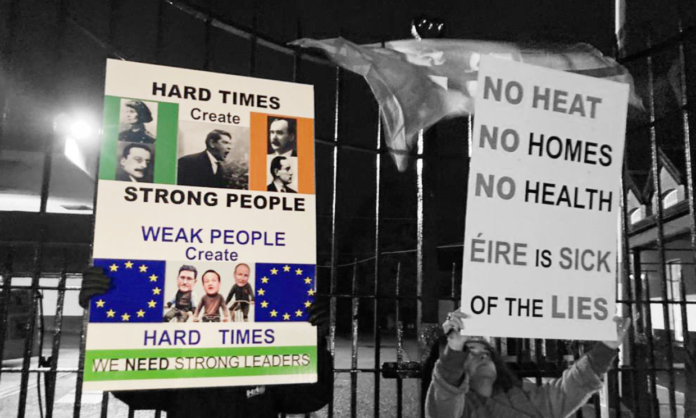Protests in Mullingar over the circumstances surrounding the arrival of asylum seekers as they are given accommodation in Columb Barracks and discontent over the way Mullingar’s traffic problems are allowed to build before a consultant is finally appointed to consider the matter – these are troubled times indeed.
And, of course, the problems don’t end there. The energy crisis and the general cost-of-living increases are never far away either, but everyone will have their own issue which, they feel, isn’t being properly addressed.
The operative word there is ‘properly’; nobody can say that any of the issues mentioned above are being ignored at State or local level. From this side of the typewriter, we’ve never seen national nor local representiatives work as hard as they are now, juggling problem after problem.
Such is the nature of their job – which they knew before the accepted office – they will be often criticised and rarely praised.
Somewhere in the maelstrom of Irish political life is the key issue of democracy, and how it is perceived by the public to be operated by those in power. When we elect somebody – say, a TD – do we expect them to follow decisions arrived at democratically by, say, a residents’ association?
To be specific, suppose a local group votes heavily in favour of stopping asylum seekers being located close to their local school; are they right in expecting, if they do, that their local TD should adopt the same attitude towards the problem, just because they elected him or her? Or does the TD concerned have the right to do as they wish, given that they’ve already been given a mandate to do just that?
At risk is the disconnect that can develop between the public and our representatives, and at the heart of it is how they, the representatives, are perceived.
At this time, An Taoiseach Leo Varadkar is being heavily criticised for his approach to accepting asylum seekers or refugees. At the recent protests in Mullingar, he was singled out on more than one occasion for heavy criticism. He was accused of ignoring, or at best not listening to, the people who put him into the Dáil. He wasn’t criticised by everyone at every protest, but take the point as it’s meant – he was a popular target.
When the 20 members of Westmeath County Council or the 160 members of Dáil Éireann meet, are they obliged to take on board the wishes of their constituents and vote on issues accordingly, or can they expect to be allowed to make up their own minds?
‘Most politicians have the courage of their convictions when it comes to exercising their office; they will vote the way they feel is right…’
That’s not so much because they ‘know better’, but because they are people who are entitled to their own opinion and express it, even if it runs contrary to a view put forward by people who elected them in the first place.
Precedent in this country shows that most politicians have the courage of their convictions when it comes to exercising their office; they will vote they way they feel is right, and not necessarily the way their local branch or local residents’ groups or protest groups wish. It’s just the way it is. In general, politics works that way – we elect people into power and then they do the best they can – we hope.
We don’t have to agree with them, they don’t have to agree with us; they don’t deserve to be abused or harrassed just because individuals feel ‘betrayed’.
Like it or not, it’s the way democracy works – and yes, democracy is the worst form of government…until you examine the alternatives.

